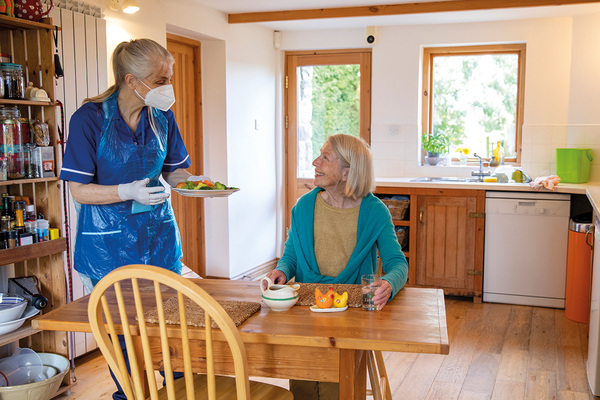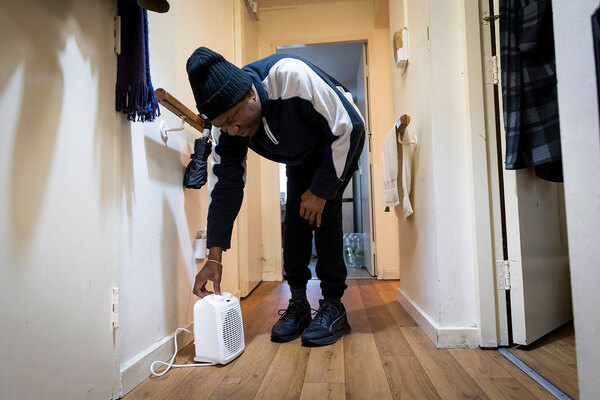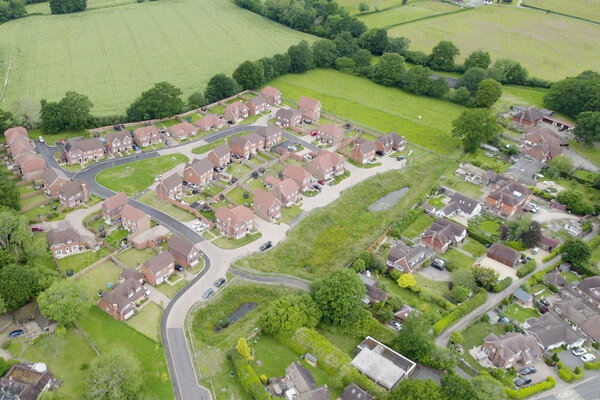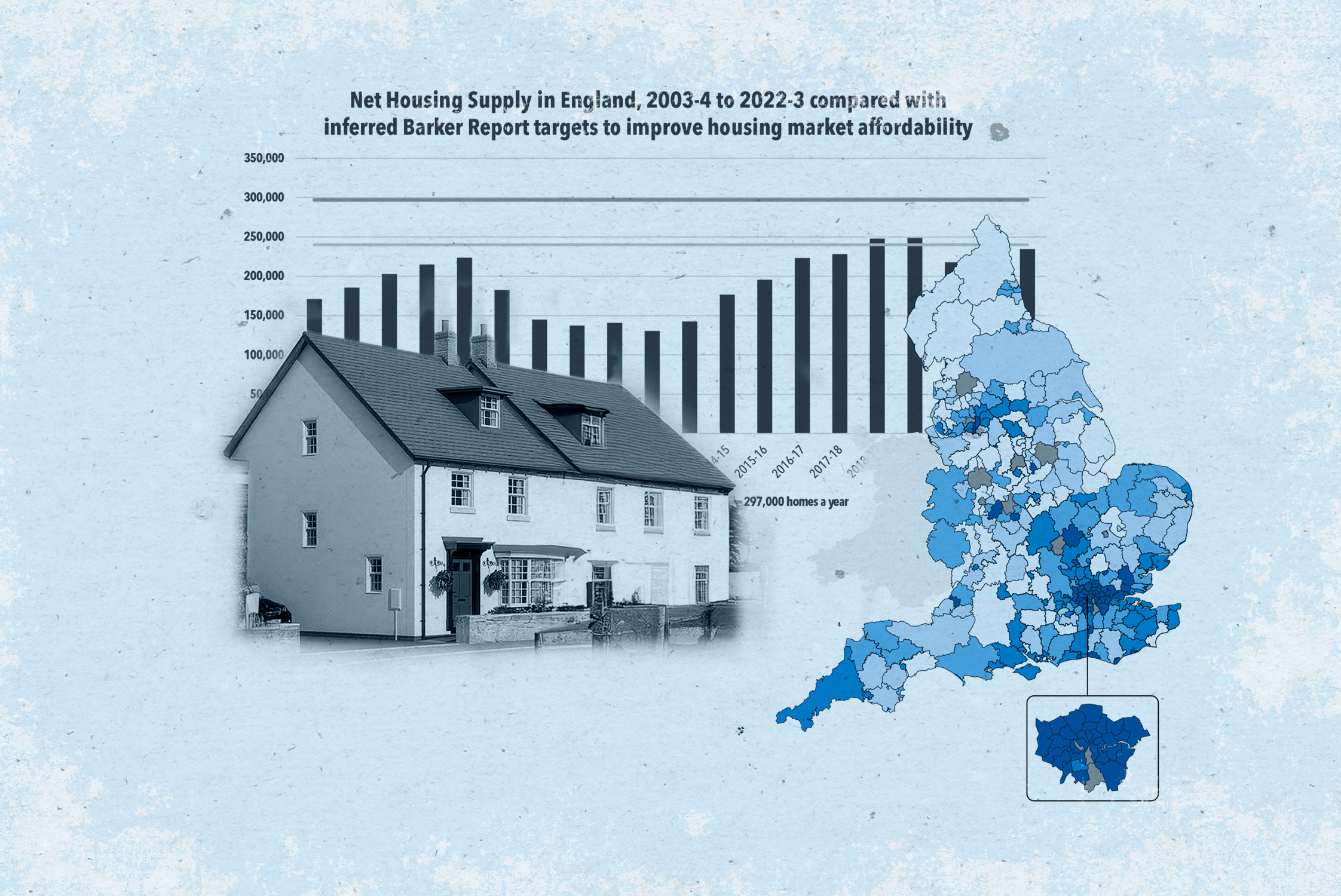You are viewing 1 of your 1 free articles
We urgently need to reform access to safe housing for migrant women and their children
Black and minoritised migrant women need gender-informed, trauma-responsive and intersectional approaches to housing, writes Michaela Melemendi, housing specialist project worker at Hibiscus Initiatives
Through conversations with our frontline caseworkers and the women we supported over the past two years, we have identified a key set of barriers that Black and minoritised migrant women face when it comes to addressing their housing needs.
Our research revealed a correlation between the lack of safe, secure housing and an increased likelihood of experiencing violence against women and girls (VAWG) and mental health struggles.
Over half of the women that Hibiscus supported in the community over the past year required urgent support with housing issues – and those affected were nearly twice as likely to suffer from mental health issues.
Our findings are collated in an evidence report. This emphasises the urgent need for gender-informed, trauma-responsive and intersectional approaches to housing provision for migrant women – all of which are necessary changes to practice for housing providers and local authorities.
The impact of not having somewhere safe to live manifests both psychologically and physically on women and their children, as it leaves women unable to improve their situations and provide a safe environment for themselves and their families.
Additionally, it stops them making progress on recovery from trauma and abuse, which can ultimately hinder long-term stability. As *Mona (not her real name) told us: “Not having somewhere safe [to live] is slowing my recovery. If you’re constantly experiencing new trauma, how can you deal with it as new ones keep coming up?”
“It is up to the professionals working within these contexts to pursue further knowledge and actively seek to educate themselves to be best placed to support Black and minoritised migrant women with their housing needs”
Women might feel forced to take risky or dangerous decisions in order to secure accommodation, which in turn leaves them open to the possibility of (re)exploitation or abuse due to the vulnerabilities arising from the lack of access to support. These intense challenges ultimately lead to a poor quality of life, limited access to social integration and increased isolation.
Hence, why it is more important now than ever to press forward and seek improvements to Black and minoritised migrant women’s access to housing.
Even when a woman is able to secure her immigration status and gain entitlement to benefits and housing support, the road to a stable housing situation is not a smooth one. Women can lose self-confidence and self-worth when they are unable to access suitable housing and are left in limbo by the systems and services that are meant to support them, ultimately delaying recovery from past trauma.
Several factors contribute to these problems and make it increasingly difficult for women and those supporting them to engage with statutory services on a procedural level. This includes:
- Lack of trauma-informed, gender-informed and intersectional approaches in application processes and among onsite staff
- Inaccessible application processes, including complex legal and procedural frameworks, online application processes, ‘gatekeeping’ responses and lack of access to legal aid solicitors
- Failure by state agencies to use available interpreting services
- Institutional barriers that fail to address communication and cultural difference
- Stigmatisation, racism and discrimination
We have recommended that the government should end the ‘hostile environment’ and abolish the ‘no recourse to public funds’ condition, which together causes so much harm to the women we support. There is also much that can be done on the ground even without these fundamental systemic changes. Improvements are needed in statutory service practices to ensure that they are better equipped to support migrant women with their housing needs.
There is a drastic need for increased use of trauma and gender-informed practices by staff, and for heightened awareness of the specific barriers faced by migrant women. Staff making decisions on women’s housing cases and allocations of accommodation need to have better knowledge and education around these women’s entitlements and be consciously working to reduce harmful gatekeeping practices.
It is up to the professionals working within these contexts to pursue further knowledge and actively seek to educate themselves to be best placed to support Black and minoritised migrant women with their housing needs.
Weight and thought need to be given to the importance of using an intersectional approach to ensure that women are properly supported to access their entitlements and overcome the barriers that they face. Partnerships and multi-agency working are vital to the pursuit of an intersectional approach.
The VAWG, criminal justice, migration and homelessness sectors all have a role to play due to the multiple needs of these women, and this should be reflected by cross-disciplinary strategic work to ensure their needs are met.
Safe housing should be available to all in the first instance, not just because they have an advocate or support worker behind them pushing for services to do the right thing. Housing is a human right – every woman that we support should be able to access safe, secure accommodation and continue down the path of rebuilding their lives.
We are committed to working with our statutory and non-statutory partners towards better outcomes.
Michaela Melemendi, housing specialist project worker, Hibiscus Initiatives
Sign up for our care and support bulletin
Already have an account? Click here to manage your newsletters













